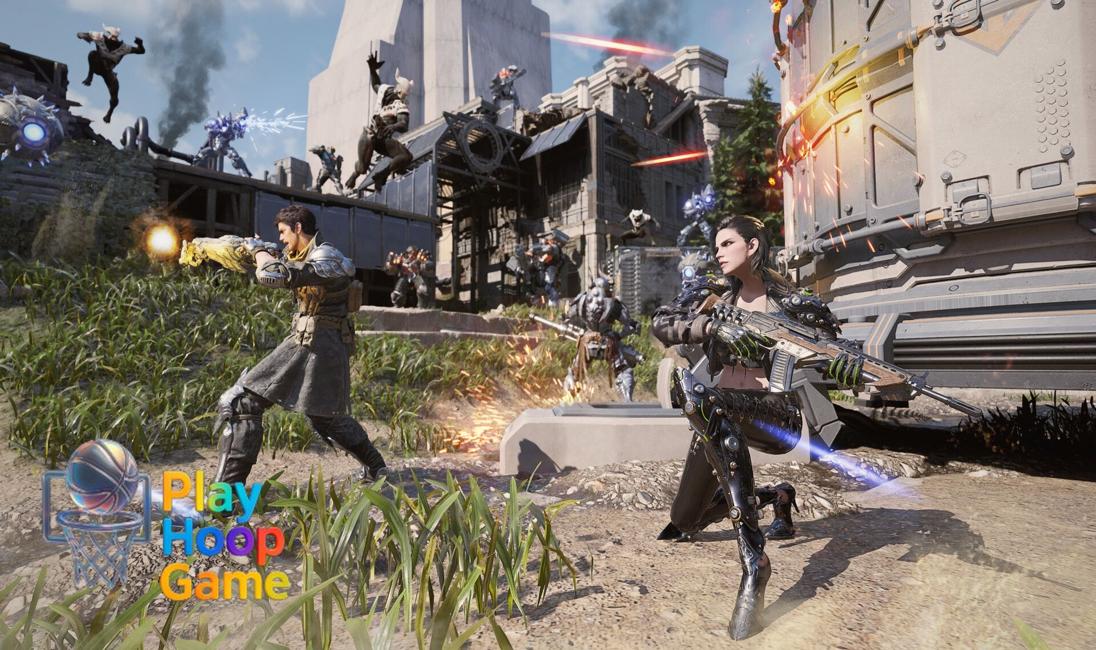There’s a specific kind of digital nausea you get from scrolling too long. A sort of psychic exhaustion. But every now and then, something cuts through the noise so jarringly, so profoundly wrong, that it jolts you awake. For me, a few weeks ago, that jolt came in the form of a TikTok ad.
It was for The First Descendant, an upcoming looter-shooter from Nexon that, on paper, looks pretty slick. But this ad... this ad wasn't slick. It featured a young woman—or a digital approximation of one—staring into the camera with eyes that didn't quite focus. Her skin had the waxy sheen of a cheap candle. Her mouth moved, but the words that came out were a garbled, rhythm-less slurry of marketing speak, delivered with the cadence of a GPS giving directions off a cliff.
My brain did a hard reboot. Was this a deepfake? A parody? A fever dream? Nope. It was real. And there were more of them. A whole plague of these soulless, AI-generated "influencers" telling us, in their slurring robot voices, to get hyped for a video game.
It was, without exaggeration, one of the most creatively bankrupt, artistically horrifying, and just plain weird marketing decisions I’ve ever seen from a major publisher. And I’ve been around long enough to remember the disastrous "White is Coming" PSP ads. This was worse. But here's the kicker, the part that truly sends this whole saga into the stratosphere of corporate fumbles. The ads weren't even the most insulting part of the story.
So, Just How Bad Were These First Descendant AI Ads?
Let's be clear: these weren't just low-budget. They were anti-budget. They felt like something a rogue engineer would cook up as a practical joke to prove how bad generative AI still is at mimicking human beings.
The "scripts," if you can call them that, were a word salad of gaming buzzwords. Things like "ultimate graphics" and "cooperative play" were delivered with zero context or emotion. The audio was often slightly out of sync. The AI avatars would gesture bizarrely, their hands clipping through their own bodies. It was a masterclass in the uncanny valley, a place so deep and unsettling it looped all the way around to being morbidly hilarious.
The gaming community, as you can imagine, had a field day. Threads on Reddit and Twitter exploded with people sharing the clips, each one seemingly more cursed than the last. The reaction was a mix of mockery and genuine bewilderment. Why would a company with the budget of Nexon, promoting what is supposed to be their next big AAA title, sign off on something that looks like it was made on a free trial of a program called "HumanSpokesperson.exe"?
It was a colossal, unforced error that made their multi-million dollar game look cheap and, frankly, untrustworthy. It's the kind of marketing misfire that can tank a game's reputation before it even launches, potentially landing it on unfortunate lists of the worst-reviewed games not because of its quality, but because the trust was poisoned from the start.
And then they tried to explain it.
The First Descendant’s Awful AI TikTok Ads Somehow Aren’t As Bad As The Excuses
Oh, the explanation. This is where the story goes from a simple, laughable mistake to something far more frustrating.
After the community backlash reached a fever pitch, Nexon released a statement. You know the kind. The carefully worded, non-apology apology that PR departments specialize in. They explained that these AI ads were "one of the ad test cases" and were "not the direction we are aiming for." They went on to say that a marketing agency had used AI voice and virtual human models without their prior knowledge. The ads were, they assured us, immediately taken down.
Wait. Let’s unpack that.
The claim is that an external agency, hired to promote a flagship title, went completely rogue. That they independently decided to create and run a series of bizarre, low-quality AI ads, and that nobody at Nexon—not a single marketing manager, brand coordinator, or social media intern—saw them or approved them before they went live and started racking up views.
I’m sorry, but I just don’t buy it. Not for a second. In the world of AAA game marketing, campaigns are meticulously planned. Ad creatives go through multiple layers of approval. The idea that a publisher would give an agency carte blanche to the point where they could run this kind of campaign without oversight is, to put it mildly, unbelievable. It’s either a lie, or it’s a confession of operational incompetence so staggering it’s almost as damning as the lie itself.
And that’s what’s so infuriating. The excuse is more insulting than the ad. The ad was just soulless and weird. The excuse assumes we, the audience, are idiots. It’s a transparent attempt to sidestep responsibility, to say, “It wasn’t us, it was the other guy!” It shows a fundamental lack of respect for the very people they want to sell their game to.
Why This Is More Than Just a Laughably Bad Campaign
This whole incident feels like a grim preview of a potential future for creative industries. It’s the inevitable result of chasing engagement metrics and cost-cutting efficiencies at the expense of humanity, creativity, and basic quality control.
Someone, somewhere, likely in a boardroom, saw a presentation about the cost-effectiveness of generative AI for ad content and thought, "Brilliant!" They saw a way to churn out dozens of variations of ads without paying for actors, scriptwriters, or editors. They saw numbers on a spreadsheet, not the waxy-skinned digital demon they were about to unleash on the public.
This is the polar opposite of what makes gaming special. We love games because of the human passion poured into them. We see it in the community, where fans line up to get a rare promo card, a stark contrast to the soulless corporate machine behind these ads, which feels more akin to the cold calculation of Pokémon scalpers than genuine fandom. We crave authenticity. We want to connect with a creator’s vision, not be marketed to by a soulless algorithm.
When the marketing is this disingenuous, this flagrantly artificial, it poisons the well for the actual game. How can we trust the promises of an engaging world and deep gameplay when the people selling it to us can’t even be bothered to hire a real human to talk about it? It makes you just want to go play a simple, honest game on a site like Poki to wash the corporate grime out of your brain.
In the end, this isn't just a funny story about a bad ad. It's a cautionary tale. A perfect, crystallised example of a company getting so lost in the sauce of marketing trends and buzzwords that they forgot the first rule: don't treat your audience like they're stupid.
FAQ: Unpacking The First Descendant Ad Controversy
So wait, were the people in the ads even real?
Nope, not at all. They were entirely AI-generated "virtual humans." That's why they looked so off—the uncanny valley effect was in full force. The voices were also AI-generated, which is why the cadence, tone, and pronunciation were so bizarre and unnatural.
Why would a big company like Nexon even use AI for ads like this?
The short answer is almost certainly cost and speed. Generative AI allows marketers to create a huge volume of ad variations quickly and cheaply, without needing to hire actors, film crews, or voice artists. The idea is to test which version gets the most clicks. The problem here is that they clearly skipped the "quality control" step.
Is using AI in marketing always a bad thing?
Not necessarily. AI can be a powerful tool for analyzing data or personalizing campaigns. But this case is an example of it being used as a crutch—a replacement for human creativity rather than a tool to enhance it. When the final product is soulless and alienating, you’ve definitely used the tool wrong.
What's the big deal? They're just ads, right?
On one level, yes. But on another, the marketing is the first promise a developer makes to its players. When that first impression is so bizarrely artificial and the follow-up excuse is so flimsy, it erodes trust. It makes players wonder what other corners are being cut behind the scenes.
How can I spot these weird AI ads in the future?
Look for the tell-tale signs: waxy or overly smooth skin, eyes that don't quite focus, unnatural head movements, and strange speech patterns. Often, the audio has a robotic, emotionless quality, and the script feels like a jumble of keywords rather than something a real person would say.

























